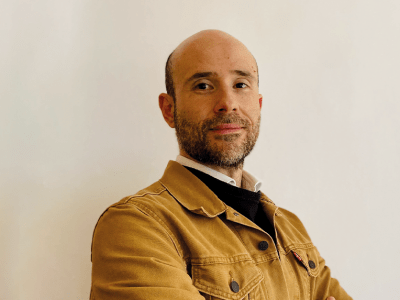Who Would You Like to Work With? Working Towards Your Dream Job by Simone Dappert
Simone Dappert, a Human Resources consultant with two decades of industry experience, addressed EU Business School students with a presentation that focused on finding and securing their dream job.
Simone is the founder of HR consultancy Konsultwerk. She also initiated femalemanagers, a career portal for women that is designed to address the fact that people of influence in business often have male-dominated networks. She described her purpose as improving cooperation and collaboration between people, and she does this by providing training and coaching on topics such as leadership, recruitment, and diversity.
Simone’s innovative work has seen her win prizes, but her greatest reward lies within the loyalty of her customers. Mrs. Dappert has continued to enjoy success, even in the midst of a global pandemic. Fittingly so, seeing as her topics of expertise are perhaps even more important than ever before. Simone shared that her own dream working environment must have a baseline of mutual respect that allows each member of the team to thrive and have fun.
An important part of her message pointed to the fact that people spend a quarter of their lives working. Thus, finding the right working environment is crucial in one’s professional life. Acknowledging that the business landscape can be confusing at times due to its dynamic nature, Simone offered practical advice for pursuing the perfect career in a changing world.
Why do you want to do this?
For Simone, why is the most important question of all. She shared with students that they are likely to spend 70-80,000 hours working in their lives. So, how can we live a happy and healthy life? The answer, according to Simone is simple: the work that one carries out simply must have a meaning. The why is what drives people to get up in the morning and keep going, even when times get tough.
To find your why, think about the impact that you want to create and the people that you are inspired by. Think about the values that are most important to you, the ones through which you wish to guide your life towards. Understanding why leads to the understanding of what: in other words, what your career should look like. The practical steps you must take to arrive at this point of reflection are covered by your how.
What do you want to do?
Simone’s philosophy centres on the fact that people should pursue nothing less than their dream job. However, some students admitted that they felt far from sure about what that job would look like. To find the field your career will focus on, Simone suggested imagining your future self and reflecting on the following questions:
- What will you be doing?
- What do you want to achieve?
- What do you want to stand for?
One useful way to envision your dream job is to look for a role model who has a position you would aspiring to obtaining one day. Simone acknowledged that, specifically in new industries, it may be difficult to find specific role models, and that you may in fact have to create your dream job from a combination of many.
Just as important as what you want is what you don’t want, which is precisely why Simone suggested establishing some red lines: boundaries to exclude what you are unwilling to accept. She believes that people should be honest with themselves and others when it comes to these boundaries. Otherwise, they will be derailed from the path to their dream job.
Naturally, you have to have some flexibility. If your dream job allows you to have plenty of holiday time, you should have a range in mind of the holiday allowance that you are willing to accept.
The only time you should not apply a range is when you are discussing salary, according to Simone. Although you may still have to negotiate, it is always better to start with a fixed figure. Otherwise, she says, employers will stick to the lower end of your salary expectations.
How can you do what you want to do?
To start answering that question, Simone suggested students analyze carefully their CV. She reminded them that CVs should not be a list of random skills and experiences. “Basic French” may be interesting for a dinner party, but unless you want to use basic French in your work, it is completely irrelevant. Think about what you want employers to do with the information you’re providing them with and how it connects with what you are applying for.
Compare your CV with the profile of someone who holds your dream job. This will clearly show you where you might be lacking. This is when you find your “what else”: all that you need to learn and do to access your dream job. Simone suggested setting clear goals but restricting the scope of them. Rather than setting goals for your entire career, focus on the next two to five years. The career landscape can change significantly in that time of course, and therefore it is extremely important to be adaptable.
When considering your how, Simone proposed reflection regarding the methods that you need to master, the tools you need to have in your kit, the contacts that will empower you, and the organizations that will be willing to support you. Knowing this will guide you within your career. She emphasized that even the smallest step cannot be taken without a clear direction.
What should be your first steps?
Once you have your why, what and how, it’s time to take action. Simone stressed that visibility should be a priority. In other words, you must tell people what you are heading for and start to spread the word. All internet profiles should correlate with the dream job that you are pursuing. Your CV should also be ready and optimized for your objectives.
Hesitancy and procrastination are serious threats to success. Simone pointed out that it is vital to apply promptly when you find something promising. Do not wait to register your interest as you may end up missing out. Similarly, you should ensure that you easily contactable. That means answering phone calls and responding to emails in a timely manner. The goal is to make it as easy as possible for prospective employers to offer you your dream opportunity.
Another element of visibility is networking. Every third job is awarded through personal contacts, so it is certainly worth your time and effort to make as many as possible! The best way to do so is in-person: through meetings, events and conferences. However, you can still make an impression online by sending personalized messages with contact requests, even if the message is short and sweet. This will help make you more memorable. Ensure you engage in posting about relevant topics and bear in mind that people need several contact points before you really draw them in.
Once you have successfully identified opportunities to build your network, make sure that you are ready to meet them head-on. Simone suggests preparing your elevator pitch and having questions ready before you meet people of influence. Your pitch should be well-prepared and tested with people you trust, and ideally there should be a 60 second, three-minute, as well as a 15-minute version. The most important thing is that they should be practiced until you are able to deliver them with confidence and character.









